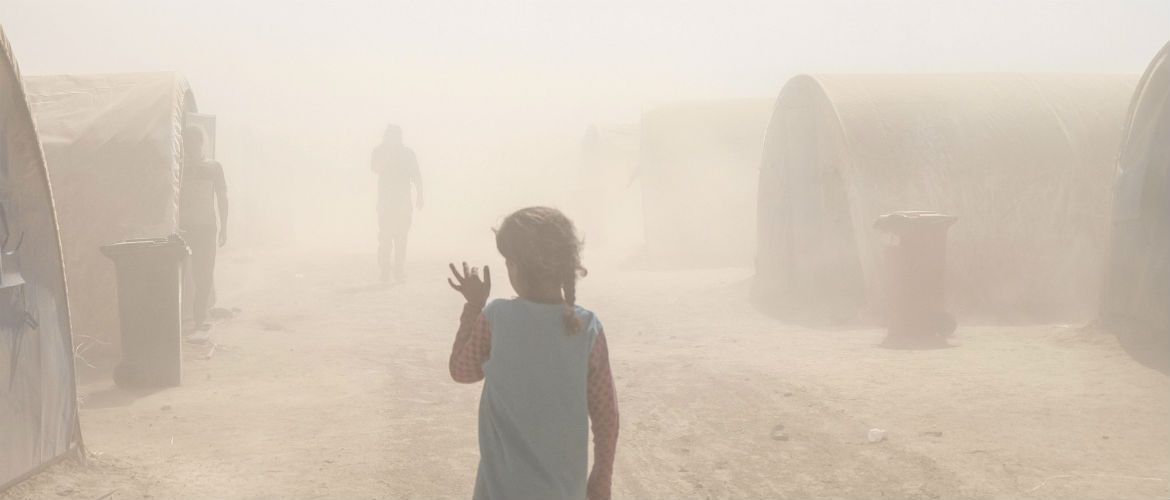
In Iraq, hundreds of thousands of civilians risk being caught in the crossfire as the offensive to retake Mosul and surrounding areas from ISIS intensifies. Families face a terrible choice between staying in ISIS-controlled areas, where many have suffered violence and food shortages, or risk their lives to escape the fighting.
According to the UN, more than 10 million people — half of them children — are in need of humanitarian assistance in Iraq, and 3.4 million people have been displaced by conflict.
As the situation is worsens and winter approaches, we are scaling up our response in the country to provide people feeling the fighting in Mosul with clean water, toilets, and other vital aid. Our goal is to reach 60,000 people with emergency aid by March 2017.
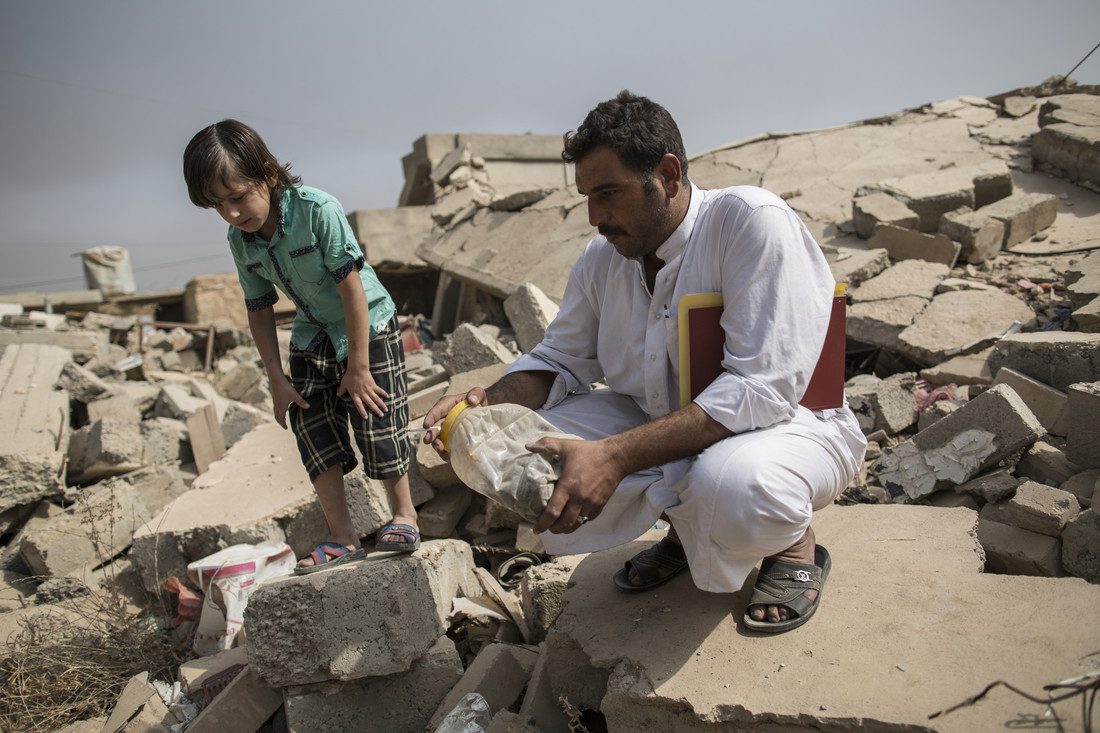
Salvaging what is left of his father’s home
When ISIS occupied the village of Imam Gharbi in 2014, they came to arrest Nisr Amr’s father, a police officer. His father resisted, but was eventually killed. The fighters then destroyed his house in retribution.
The Coalition military forces retook the village in August. Oxfam are distributing emergency supplies including blankets and hygiene items to families from the area that are still displaced. Since 2014, we have been working in 50 villages and towns across the Diyala and Kirkuk governorates helping to support families who have fled ISIS and the military operations against it.
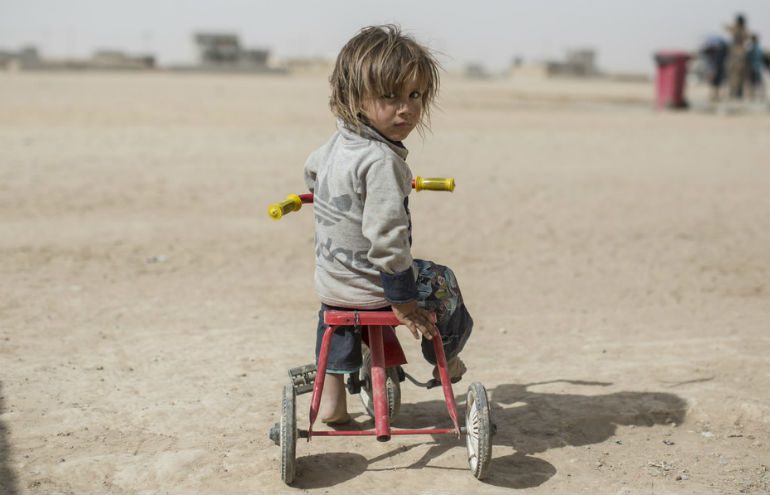
Children in the camps
Jasm is two years old. His family also lived in the village of Imam Gharbi. When the Coalition military retook the village in August, their house was destroyed by shelling. The family fled the fighting and are now living a few kilometres away in the camp in the village of Tinah.
Around five million children are in need of humanitarian assistance in Iraq. Oxfam is distributing essential aid to families sheltering here and assisting them when they decide to return home.
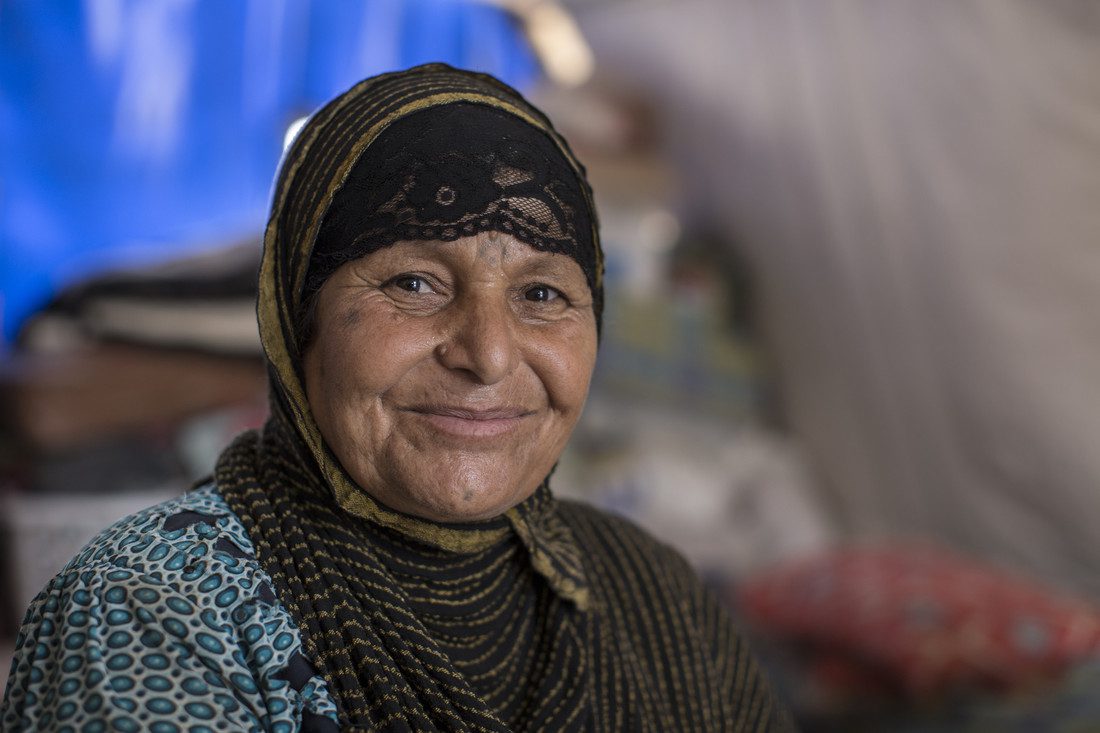
She hopes to return home soon
Usra* also escaped Imam Gharbi to a nearby town with her family, including her grandchildren. After 20 days they were made to walk to the small village of Tinah, along with thousands of other villagers. The journey took them seven hours.
When they arrived in Tinah there were no provisions. It was days before they were even able to find clean water to drink.
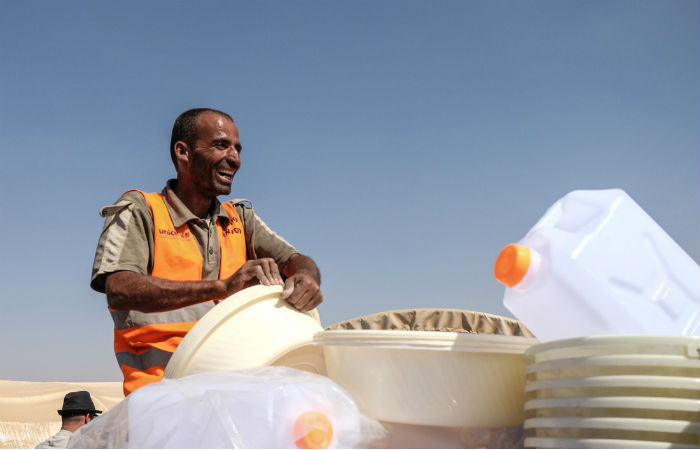
Clean water is vital
Because facilities in the camps are poor, it’s estimated that as many as 90% of families on the move are choosing to flee to host communities. Unpredictable patterns of movement are making it challenging for aid groups to help meet their needs.
In mid-September, Oxfam and its local partner made a quick distribution of jerry cans, wash basins, and blankets to more than 250 households in a small camp of 200 tents in Tinah. We will continue with assessments in the Mosul corridor focusing on water and sanitation, food security and protection.
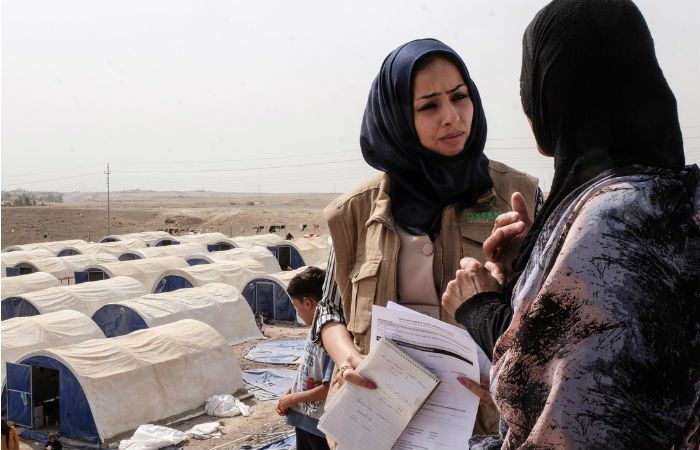
Photo: Amy Christian / Oxfam
“We only managed to bring the clothes we were wearing”
As Basma Yaseen Khader, 45, who now lives in the camp with her relatives, describes: “Now we are here we are thankful to be safe but there is so much that we need. We only managed to bring the clothes we were wearing and we don’t have enough food; we eat just half a piece of bread each per day. We are hungry.
“There are toilets here in this camp but the women’s toilets are right next to the men’s and we are embarrassed to use them. We go to the toilet in groups or sometimes we use a bucket in our tents and throw it out. We need some help.”
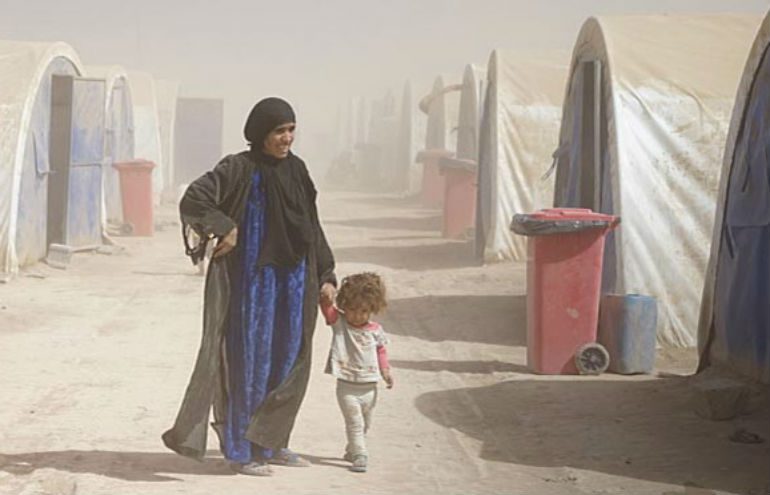
Emergency in Iraq
Civilians risk being caught in crossfire as the military operation to retake Mosul and surrounding areas from ISIS intensifies. Donate today so we can respond in countries facing humanitarian crises.
* These names have been changed to protect people’s identity